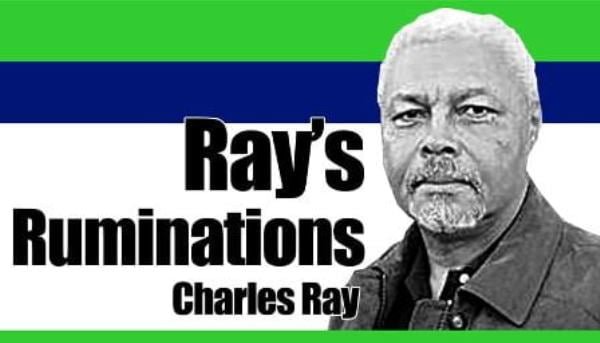
As a youngster I was painfully shy. I tended to hang around with the two or three people I knew, and even when I played team sports I never participated in the team chatter. When I started school, because my mother had taught me to read and do basic arithmetic, during my first four years in the classroom the teachers mostly gave me books from the higher grades to read, had me go to the blackboard (which were actually black in the 1950s) and show the other students how to work problems, and otherwise left me to my own devices.
In the late 1950s, the education department tried an experiment where students were tested and then put in grades based on test scores rather than age. In my school where enrollment of K-12 was just over 100 students—in a town with a population of 715, I was the only student to score a grade above age, whatever that meant to the egg heads who designed the program. The result was I went directly from fifth grade to seventh grade, the last year of what was then called junior high school—now known as middle school.
That was traumatic because even before being skipped a grade, after second grade I was the youngest kid in my class by a year or two. In our farming community a lot of the kids had to skip school a lot to help on their family farms, so a few of my classmates even in first grade were kids who had been held back a time or two.
In that last year of junior high and my first year of high school (at which time I was twelve) in my class of six (two boys and four girls) two of them were a year older, one was three years older, one four years older, and the oldest girl in class was a whopping six years older. Our country school had two classes per homeroom teacher, so as a freshman in high school I was in a room with at least half a dozen kids four to six years older than me.
It was a traumatic experience and I on the first day I completely withdrew, arriving at school each day, taking a seat at the back of the classroom, and not saying a word all day long—to anyone.
Unlike the lower school teachers who were content to let me inhabit my own world as long as my homework was done and I passed the tests, my homeroom teacher, who was also the high school English teacher, determined that I would break out of my shell of shyness and join the rest of the world. Paulyne Evans pioneered tough love before the phrase became popular.
Starting the second week of my first semester as a freshman, when I walked into the classroom she would make me stand at the front of the class until I said something even if it was nothing but “good morning, class.’”
Like most of the kids in my community, I worked. I had a full time night job working for a local poultry company from the time I was twelve, working from 10 p.m. until 4 in the morning. My usual routing was to get home at 4:30 a.m. take a quick bath, sleep until 6:30, get up, eat a quick breakfast and go to school. Fortunately, the school was a five minute walk from my house.
Anyway, one morning, after a night shift that had not ended until 6 a.m., having had no time to do anything but take a quick bath, swallow a biscuit and a piece of cold ham washed down with buttermilk, I made it to the classroom just before the bell. When Miss Evans stopped me at the front of the room for our daily ritual, I was too sleepy and grumpy to play along. I said something that I no longer remember, but it was a bit lippy. She was shocked and the entire classroom erupted in laughter.
For me this was one of those ‘eureka’ moments. Years later, I finally realized that I was shutting people out because I feared these kids older than me would reject me. When they started laughing, not at me, but at what I said, I suddenly saw them as people not a lot different than me—not quite as well read perhaps, but otherwise the same, and from that moment on even though I still get somewhat tense just before making public remarks, I have no problem with doing it.
Years later, when I had finished a 20-year-career in the army and was embarking on my 30-year diplomatic career, I had a chat with Miss Evans about that. She admitted that it had been a form of shock therapy but said something I found wickedly amusing. She told me that for years after that she had mixed emotions. On the one hand, she was glad to have helped me get over my shyness, but on the other, she feared that she had unleashed a monster upon the world.
I still wonder what she meant by that. – NWI




